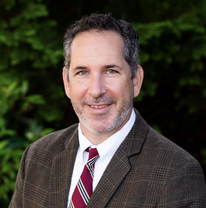The second question stems from my belief that schools are meant to serve both an individual and social good. Thus, well-resourced schools have an even greater obligation to serve its students and the broader community. In short, private schools must also serve a public purpose.
I believe all well-resourced private schools must find ways to answer them with a “yes” if they truly wish to justify their existence and the privilege that having attended can confer upon students. However, the reality is that, although we might not want to admit it, it can be hard for many, if not most of our schools to truly answer these questions in the affirmative. Many private schools offer an almost identical curriculum to what you would find in public schools from World History and Biology in 9th grade through to AP courses in 12th grade. A few years back, a parent pointed out to me, with grave concern, that her daughter’s transcript looked identical to a friend’s daughter’s who went to a public school. In fact, most of the courses did have the exact same titles. “How does this differentiate my daughter?” the woman asked. Now I know the transcript – a list of course titles – is not, by any stretch, a reflection of what we provide students and the value we believe to be inherent in that, but at the same time, shouldn’t our program be different? That is what can distinguish us, that is part of what will make us worth our price tag. We know that solving the world’s complex problems requires an interdisciplinary approach. We know that experiential education leads to learning that is more lasting. And we have the freedom to quickly make the changes to put more progressive programs in place. Our value lies in our freedom to take institutional action. Nevertheless, we get bogged down in red tape of our own creation and make 7 year strategic plans that are primarily operational and financial and don’t address teaching and learning. We shy away from the real hard work that it takes to lead and carry out change, and so we stay the same, the same as we always were, and not that different from the many other schools whose price tags are far lower than ours. With regard to my second question about serving a social good, our schools have long paid lip service to this, encouraging their graduates during convocation and commencement speeches to go out and do good. Some of us have even gone so far as to require community service. But very few have been so bold as to change the organization of their curricula in ways that intentionally focus it on preparing students to address the many problems that currently plague our world. To truly serve a public purpose, independent schools must directly engage their students in thinking about pressing problems from an interdisciplinary perspective. For example, climate change should not be relegated to one unit of an environmental science class. Climate change — the science of it, the politics of it, the economics of it — must be the central focus of multiple required classes. The same can be said about problems of inequality, misinformation, political polarization, and tensions in international relations. Siloed academic departments need to become a thing of the past. Courses and distribution requirements need to be focused around the pressing problems of our time. To one day solve these problems students today need to develop creativity and ingenuity, they need to learn how to lead and how to collaborate. These skills also need to be at the heart of our curriculum. Yes, accurate knowledge matters (perhaps more than ever in our age of so easily shared misinformation), but skill-building needs to be at the center. We can help students to develop the skills they will need to solve the world’s problems, but we also need to give them the motivation. How many of our schools require courses in religion, civics, and moral philosophy? We need these courses not to indoctrinate students into thinking a certain way, but to make sure they are exposed to the range of ideas about what it means to live a meaningful life, to behave ethically, and to contribute to the common good. I know it won’t be easy, but surely, requiring such courses might help shift our schools from places where students go for self-advancement, concerned only with gaining an elite college admissions and a high paying job, to places where students leave with a deep understanding of their obligations to others. Our curriculum must aim students towards service beyond the self. Those two questions will likely remain on my white board for some time, but I am optimistic that the answer to both questions can eventually be yes. The first step toward making that a reality is openly acknowledging the importance of the questions and the work that needs to be done to get to yes!
0 Comments
Leave a Reply. |
Don't miss our weekly blog posts by joining our newsletter mailing list below:AuthorsBrad Rathgeber (he/him/his) Archives
July 2024
Categories |


 RSS Feed
RSS Feed